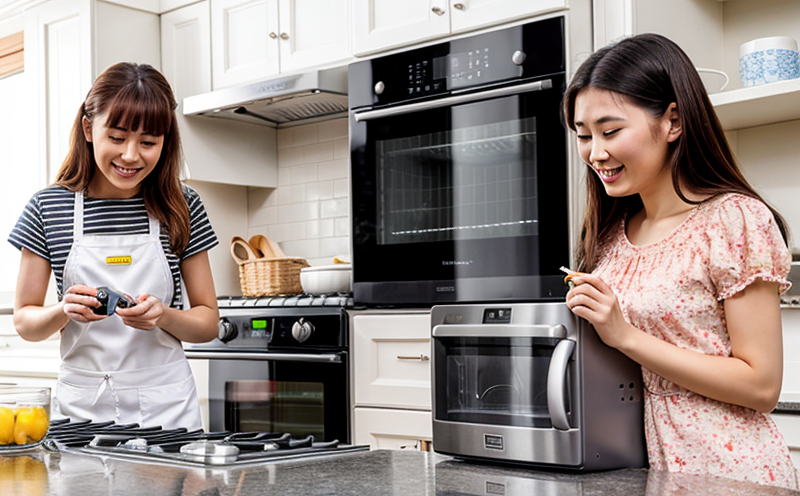DIN EN 50564 Power Consumption Testing in Household Products
The DIN EN 50564 standard is a crucial part of the European Union’s efforts to reduce energy consumption and promote sustainability across various sectors, including household electrical appliances. This standard specifies methods for measuring power consumption of household products such as refrigerators, washing machines, and other energy-consuming devices under specific operating conditions.
Compliance with DIN EN 50564 is mandatory for manufacturers seeking to sell their products within the European market. The standard ensures that all tested appliances meet stringent requirements regarding power efficiency, helping consumers choose more environmentally friendly options while reducing overall household electricity bills.
The testing process involves several stages aimed at ensuring accurate measurement of energy consumption over a specified period. Specimen preparation typically includes setting up the appliance in accordance with manufacturer specifications and environmental conditions similar to those found in typical home settings. Instruments used during these tests must be calibrated to international standards like ISO 8001-2:2013 for calorimetry.
For refrigerators, for instance, testing might involve measuring the energy consumption while operating at maximum load and under ambient temperatures representative of summer months when electricity demand peaks. Similarly, washing machines would be tested using wash cycles that simulate common usage patterns. These rigorous procedures ensure consistent results across different models produced by various manufacturers.
Accurate power consumption testing plays a vital role in the development phase of new products as well. Manufacturers can use this data to identify areas where improvements could lead to significant reductions in energy usage without compromising performance or functionality. By adhering strictly to DIN EN 50564 during R&D stages, companies not only enhance their product offerings but also contribute positively towards global environmental goals.
It is essential for quality managers and compliance officers familiarizing themselves with these regulations early in the design process so they can implement necessary changes before finalizing prototypes. Additionally, R&D engineers must stay updated on any updates or amendments to DIN EN 50564 to ensure continuous compliance throughout product lifecycle.
The importance of accurate testing cannot be overstated when it comes to meeting regulatory requirements and demonstrating commitment to sustainability. Non-compliance can result in costly penalties, damage to brand reputation, and potential loss of market share. Therefore, investing time and resources into thorough testing is not only advisable but also imperative for businesses operating within the European Union.
Benefits
- Enhanced Product Quality: Rigorous power consumption testing ensures that household products meet strict energy efficiency standards, leading to better overall product quality.
- Competitive Advantage: Compliance with DIN EN 50564 can give manufacturers a competitive edge by allowing them to offer more efficient and environmentally friendly appliances.
- Consumer Confidence: Meeting these standards builds trust among consumers who are increasingly concerned about energy efficiency and sustainability.
EuroLab Advantages
At EuroLab, our expertise in DIN EN 50564 testing sets us apart from other laboratories. With state-of-the-art facilities and experienced technicians, we provide comprehensive services tailored to your specific needs.
We offer flexible scheduling options to accommodate busy production schedules while maintaining high standards of accuracy and precision. Our commitment to customer satisfaction is reflected in our willingness to work closely with clients throughout the testing process—from initial consultation through final report delivery.
Our team has extensive experience working with household appliance manufacturers, ensuring that we understand both industry-specific challenges as well as broader regulatory requirements. This knowledge allows us to provide informed advice and recommendations based on real-world test results, helping you make data-driven decisions about product improvements.
Environmental and Sustainability Contributions
By adhering strictly to DIN EN 50564 during testing, we contribute significantly to environmental sustainability efforts. Reduced energy consumption directly translates into lower greenhouse gas emissions, which helps mitigate climate change impacts.
In addition to reducing operational costs for manufacturers, compliant products also benefit consumers by lowering their utility bills and promoting responsible resource use. Our role in this process is not just about compliance; it's an opportunity to play a part in shaping a greener future for all.





